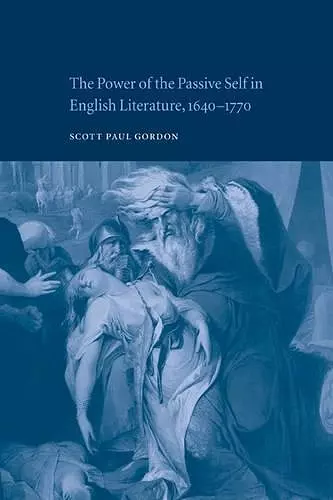The Power of the Passive Self in English Literature, 1640–1770
Format:Paperback
Publisher:Cambridge University Press
Published:3rd Nov '05
Currently unavailable, and unfortunately no date known when it will be back
This paperback is available in another edition too:
- Hardback£90.00(9780521810050)

This book examines passivity, and disinterestedness, in English writing during the seventeenth and eighteenth centuries.
Challenging recent work that contends that seventeenth-century English discourses privilege the notion of a self-enclosed, self-sufficient individual, The Power of the Passive Self in English Literature recovers a counter-tradition that imagines selves as more passively prompted than actively choosing.Challenging recent work that contends that seventeenth-century English discourses privilege the notion of a self-enclosed, self-sufficient individual, The Power of the Passive Self in English Literature recovers a counter-tradition that imagines selves as more passively prompted than actively choosing. This tradition - which Scott Paul Gordon locates in seventeenth-century religious discourse, in early eighteenth-century moral philosophy, in mid eighteenth-century acting theory, and in the emergent novel - resists autonomy and defers agency from the individual to an external 'prompter'. Gordon argues that the trope of passivity aims to guarantee a disinterested self in a culture that was increasingly convinced that every deliberate action involves calculating one's own interest. Gordon traces the origins of such ideas from their roots in the non-conformist religious tradition to their flowering in one of the central texts of eighteenth-century literature, Samuel Richardson's Clarissa.
"The Power of the Passive Self is an impressive and original book that makes an important contribution to current scholarship on the origins of the modern individual." Eighteenth-Century Fiction
ISBN: 9780521021845
Dimensions: 229mm x 152mm x 18mm
Weight: 463g
292 pages